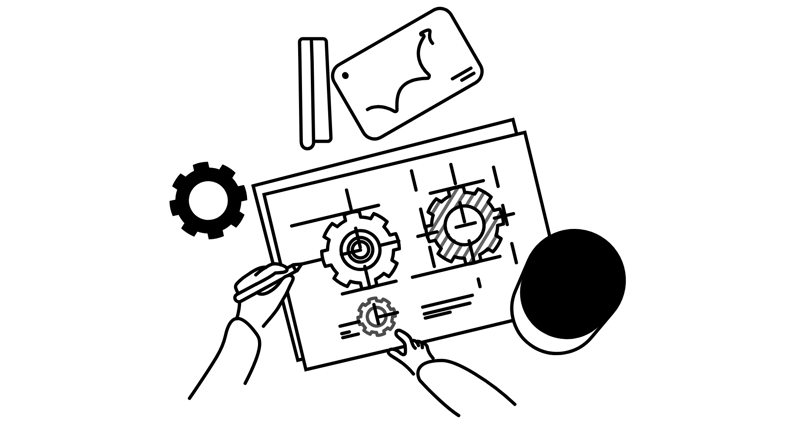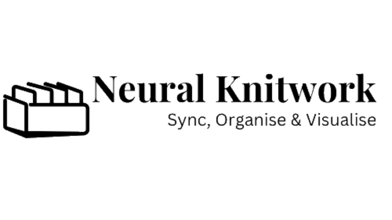How Can a Personal Knowledge Management Tool Boost Your Productivity?
Syed Irfan
2/7/20253 min read


We've all been there – drowning in a sea of scattered notes, forgotten bookmarks, and half-remembered ideas. In today's information-rich world, staying organised isn't just about keeping a tidy desk anymore. It's about managing the countless pieces of digital information that cross our paths daily. This is where personal knowledge management tools come into play, acting as your digital brain to supercharge your productivity.
The Hidden Cost of Information Chaos
Picture this: You're working on an important project, and you distinctly remember reading a perfect reference article last month. Was it in your browser bookmarks? Your note-taking app? That email thread you can't quite locate? You spend 20 minutes searching, only to give up in frustration. Sound familiar?
Studies suggest that knowledge workers spend nearly 20% of their time searching for information they've previously encountered. That's essentially one full workday each week lost to digital clutter. The cost isn't just in time – it's in missed opportunities, repeated work, and mental fatigue.
What Makes PKM Tools Different?
Unlike traditional note-taking apps or file systems, personal knowledge management tools are designed to work the way your brain does. They create connections between pieces of information, allowing ideas to flow naturally and insights to emerge organically.
Think of it as building your personal digital garden. Each note, article, or idea you save is a seed. The PKM tool helps you nurture these seeds, connecting them with related concepts, and watching them grow into a network of knowledge that's greater than the sum of its parts.
Real Productivity Gains Through Better Knowledge Management
1. Capture Everything, Forget Nothing
Remember that brilliant idea you had during your morning coffee? With a PKM tool, you can quickly capture it before it vanishes. The best systems make it effortless to save thoughts, web articles, meeting notes, and research findings in one searchable space.
2. Connect the Dots
The magic happens when you start linking related pieces of information. That article about customer behavior suddenly connects with the feedback from last week's user interviews, sparking new insights you might have missed otherwise.
3. Find Information in Seconds
Modern PKM tools offer powerful search capabilities, letting you find exactly what you need when you need it. No more digging through endless folders or trying to remember where you saved something.
4. Build Knowledge Over Time
Rather than creating isolated notes that gather digital dust, PKM tools help you build a living, breathing knowledge base. Each new piece of information strengthens and enriches your existing knowledge network.
Making PKM Work for You
The key to success with personal knowledge management isn't just choosing the right tool – it's developing sustainable habits. Start small:
Spend 15 minutes each morning processing your inbox of collected information
Create quick links between related notes as you review them
Set aside time each week to explore and strengthen connections in your knowledge base
Remember, the goal isn't to create a perfect system overnight. It's about building a reliable second brain that grows and evolves with you.
The Long-term Impact on Your Work
When you invest in personal knowledge management, you're not just organising information – you're investing in your future productivity. Every piece of information you save and connect becomes a building block for future projects, ideas, and innovations.
Think about how much easier your next project will be when you can instantly access all relevant research, notes, and references. Or how much more valuable your contributions become when you can draw connections between different areas of knowledge.
Beyond Individual Productivity
The benefits of PKM extend beyond personal productivity. When you have a well-organised knowledge system, you become a more valuable resource for your team. Sharing insights, creating documentation, and onboarding new team members all become more manageable when your knowledge is properly structured and easily accessible.
Getting Started
The best PKM system is the one you'll actually use. Start by identifying your biggest information management pain points:
Do you struggle to find specific notes or references?
Are you overwhelmed by too many unprocessed bookmarks and articles?
Do you often recreate work because you can't find previous versions?
Choose a tool that addresses these specific challenges and commit to using it consistently for at least a month. The productivity gains will compound over time as your knowledge base grows and becomes more interconnected.
The Future of Work is Knowledge Work
As we move further into the knowledge economy, our ability to manage and leverage information effectively becomes increasingly crucial. Personal knowledge management tools aren't just productivity enhancers – they're essential instruments for thriving in an information-rich world.
By investing in a PKM system today, you're not just solving current organizational challenges; you're building a foundation for continuous learning and growth. The question isn't whether you need a personal knowledge management tool – it's how much longer you can afford to work without one.
Remember, the goal of personal knowledge management isn't to create a perfect system – it's to build a reliable partner for your brain, one that helps you think better, work smarter, and achieve more with less stress.
